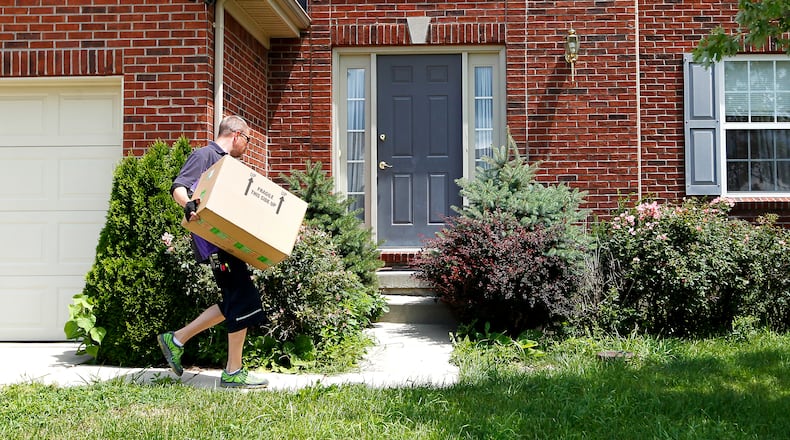RELATED: Butler County officials call on state to plug sales tax budget holes
“The retail industry has changed dramatically since it was dominated by traditional brick and mortar stores…,” said Gary Gudmundson, spokesman for the Ohio Department of Taxation. “Now the states are just seeing too much potential tax revenue (from internet sales) going uncollected.”
As the law stands now, online vendors only have to collect sales taxes from consumers if the vendors have a physical presence in that state. Consumers are supposed to file their own sales tax returns for purchases they have made tax-free. Statistics show that doesn’t happen very often.
Of the five-plus million tax returns filed in Ohio last year, only 68,385 included a sales tax form. Gudmundson said the state collected about $10.8 billion in sales tax in fiscal year 2017 and his department estimates about $250 million is associated with online purchases.
“So a lot of people are not reporting use tax, and that’s in part why states would like the vendor to collect it,” he said. “It’s just more efficient and a more effective way to levy and collect the tax.”
The state and all 88 counties recently took a hit after the federal government erased Medicaid managed care sales tax. Butler County lost $2.1 million in revenue per year. County Commissioner Don Dixon said if the court rules in favor of the states “it would be very substantial” and will further their goals of attacking infrastructure needs, like a proposed new bridge over the Great Miami River in Hamilton.
“It could be sizable, but irregardless if it doesn’t work out that way we’ve set Butler County on a financial track to be able to do some heavy lifting on some of these big projects,” Dixon said. “So one way or another, we’re going to get it done.”
MORE: Butler County commissioners looking for cost numbers on new Hamilton bridge
Butler County Administrator Charlie Young said officials have no way of knowing the potential impact on the county if the court sides with the states, but it could be substantial, having a positive impact on county services.
“It is certainly something, in the interest of the sales tax being applied fairly, it needs to be applied to sales whether it’s through a brick and mortar store or over the internet, in order for the local governments that provide the services to the local areas can be funded,” he said.
There were rumors this week that a fix for internet sales tax might be included in the $1.3 trillion spending bill the House sent to the Senate on Thursday, according to Matthew Henderson, press secretary for Republican Congressman Warren Davidson. In the end, however, it was left out.
He said Davidson has not taken a position on the issue but will get very interested if a bill is introduced.
“It is a tax and there are concerns it would undermine some of the effects of the tax reform that just went through,” Henderson said. “That would be something that would be not very popular.”
Democratic Senator Sherrod Brown favors “leveling the playing field” for local businesses.
“Family-owned hardware stores and small retail shops across Ohio should have the opportunity to compete with massive online retailers,” he said in a statement.
A spokesperson in his office said Brown supported the Marketplace Fairness Act that passed the Senate with bipartisan support in 2013, but the House never took a vote on it.
The online retailers asking the high court not to overturn the 1992 court decision known as Quill Corp. v. North Dakota say a reversal will put small online companies at a disadvantage.
“The State asserts that states are suffering an ever-increasing loss of tax revenue. The ‘problem’ of uncollected taxes, however, has proven to be largely self-correcting, as the largest online sellers collect sales tax in all states,” the brief by Wayfair reads. “Amazon.com, the poster-child of online marketing, which accounts for half of all Internet sales and 60 percent of the growth, now collects sales tax in every state that has a sales tax. If Quill is overruled, the burdens will fall primarily on small and medium-size companies whose access to a national market will be stifled.”
Butler County Commissioner T.C. Rogers said he is more interested in the county’s businesses being able to compete against sellers who aren’t collecting the tax — the county’s sales tax rate is 0.75 percent of the 6.5 percent rate people pay — and making sure they get a fair shake.
“I think that if it is ruled that way it’ll be a more level playing field for the retailers which have made major brick and mortar investments in our community,” Rogers said.
About the Author
